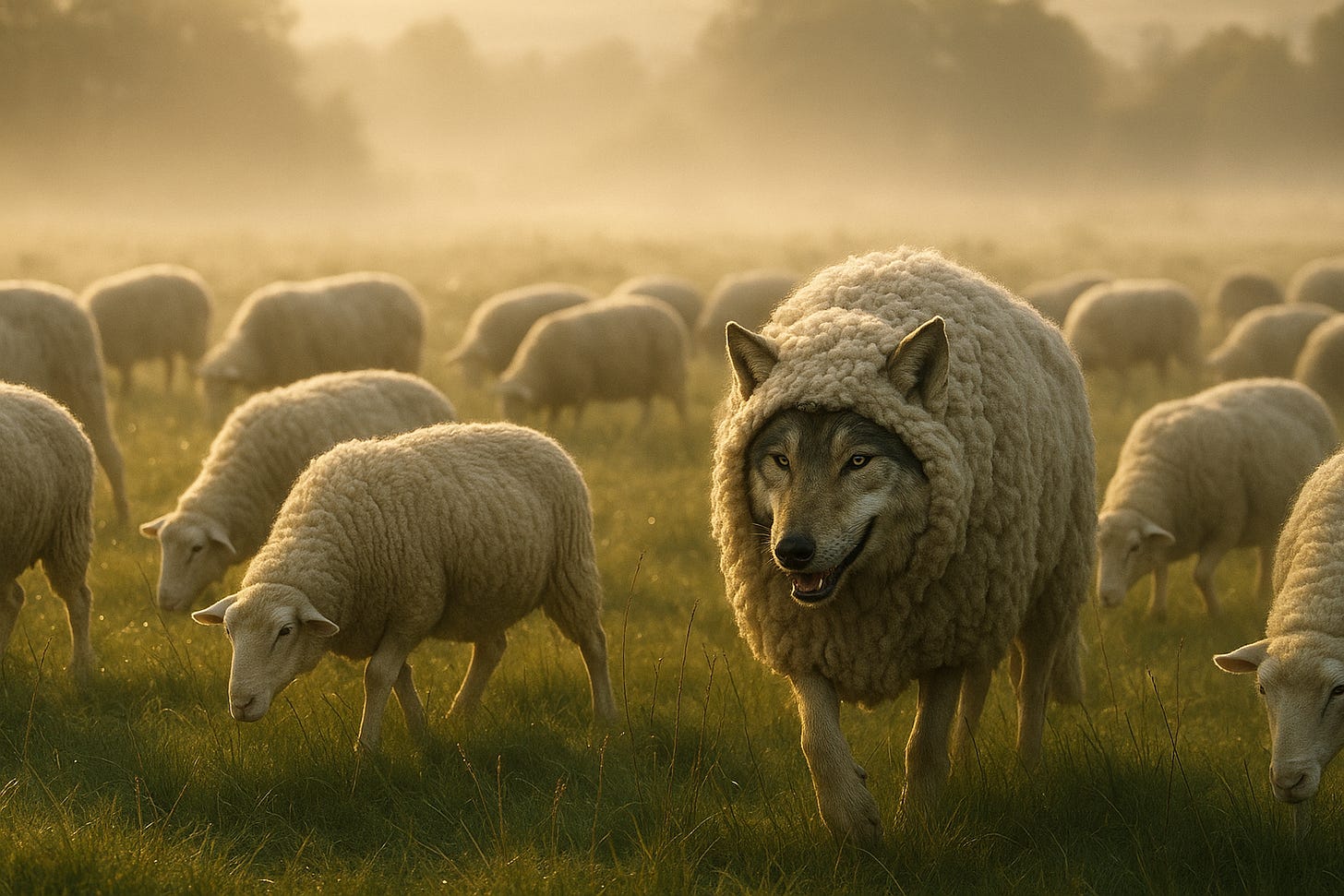The Greater Good
A Wolf in Sheep’s Clothing
In every generation, there arises a phrase so seemingly noble, so perfectly wrapped in moral virtue, that few dare to question it. “The Greater Good” is one such phrase, a wolf dressed in the wool of compassion. It appeals to our innate sense of charity and fairness, yet beneath its gentle exterior lurks a dangerous idea: that the rights of the individual may be sacrificed on the altar of collective comfort.
It is a seductive lie, because it masquerades as love for neighbor while subtly eroding the freedom that makes love possible in the first place. When a society embraces “The Greater Good” as its highest moral compass, it trades principle for pragmatism, truth for expedience, and liberty for control.
The Morality Mirage
At first glance, the concept of the “greater good” seems harmless, even virtuous. Who doesn’t want to serve others, to make life better for the many rather than the few? But this is precisely why it is so dangerous. It takes a divine virtue, selflessness, and corrupts it into a human instrument of manipulation.
The “greater good” sounds like morality, but it is not moral in itself. It has no anchor in eternal truth. It defines good not by righteousness but by majority opinion or bureaucratic decree. And when “good” becomes whatever the ruling class decides it is, liberty withers like a plant uprooted from soil.
True morality flows from the Creator. It is rooted in fixed principles: justice, truth, accountability, mercy. The greater good, by contrast, is situational, shifting, and undefined. It allows any means to justify any end. Once that door is opened, tyranny is never far behind.
The Covid Test: How Quickly Liberty Can Fall
We saw this truth unfold in real time during the Covid-19 pandemic. Under the banner of “protecting others,” entire populations were stripped of their basic freedoms: freedom of speech, movement, worship, and even bodily autonomy.
Governments shut down churches but kept liquor stores open. Families were separated in hospitals. People were forced to choose between their jobs and their conscience. Those who dared to question the mandates were banned on social media and branded selfish or unscientific, as though moral virtue lay in blind obedience to “experts.”
All of it was justified as being for “the greater good.”
But history will remember this period not as an act of compassion, but as a chilling demonstration of how fear and virtue-signaling can turn a free society into a compliant one overnight. The “greater good” became a moral cudgel used to silence dissent and shame those who believed liberty was essential to health, not its enemy.
When Faith Is Used Against the Faithful
The most insidious part of the “greater good” deception is how it weaponizes the Christian conscience. Believers, motivated by Christ’s call to love their neighbor, are often the easiest to guilt into compliance.
But here is the truth: Loving your neighbor does not mean surrendering your God-given agency. Christ’s love was voluntary, not coerced. He invited, He taught, He sacrificed, but He never mandated.
Yet, under the guise of the greater good, Christians are often told that to question globalist agendas or resist government overreach is un-Christlike. They are told that personal freedom is selfish, that skepticism toward power is cynicism, and that submission to bureaucrats is an act of faith.




